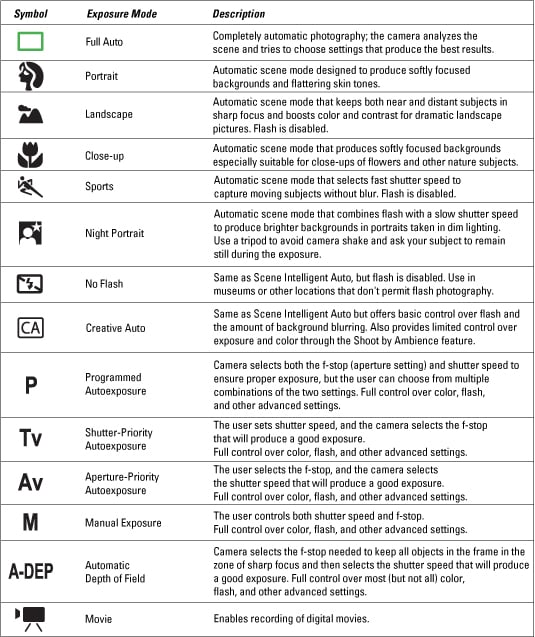High Sierra Manual Cheat Sheet
Chapter 3 Cardiac Emergencies 38 First Aid/CPR/AED Participant’s Manual. 60 30 55 5 50 10 45 15 40 20 35 25. 60 30 50 10 40 20. Daniel Peter of Fotoblog Hamburg has created this free downloadable cheat sheet card for beginner photographers in easy to understand diagrams. The card is meant to show you a basic overview of aperture, ISO and shutter speed, but doesn’t go into much detail of what it all means. And it isn’t meant to. It is formatted for printing on a.
This cheat sheet covers the most important concepts that you need to know in order to complete your Basic Life Support (BLS) exam.
GENERAL CONCEPTS
Main Components of CPR (C – A – B)

-Compressions
-Airway
-Breathing
High-Quality CPR:
- Start compressions within 10 seconds of recognition of cardiac arrest
- Chest compression rate of 100 – 120 per minute
- Compression depth of 2 – 2.4 in. (5-6 cm.) for adults and children
- Compression depth of 1.5 in. (4 cm.) for infants
- Minimize interruptions in compressions
- Do not over-ventilate the victim
- Breathing rate is every 5 – 6 seconds (10 – 12 breaths per minute)
- Allow complete chest recoil after each compression
- Do not lean on the chest wall between compressions
Adult Chain of Survival – IHCA (In-Hospital Cardiac Arrest)
Adult Chain of Survival – OHCA (Out-of-Hospital Cardiac Arrest)
Pediatric Chain of Survival
BLS FOR ADULTS
One-Rescuer BLS Steps for Adults
Two-Rescuer BLS Steps for Adults
Steps for Performing CPR for Adults
BLS / CPR FOR CHILDREN
One-Rescuer BLS Steps for Children
Two-Rescuer BLS Steps for Children
Steps for Performing CPR for Children
BLS / CPR FOR INFANTS
One-Rescuer BLS Steps for Infants
Two-Rescuer BLS Steps for Infants
Steps for Performing CPR for Infants
BLS ALGORITHMS
AED USAGE
Steps for Using an AED
1.) Open AED case and turn the deviceON
2.) Expose the victim’s chest
3.) Attach AED pads to the victim’s chest
4.) Do not touch the victim when AED is ANALYZING
5.) Before deliveringSHOCK, make sure the victim’s chest is clear, no one is touching the victim, and the area around the victim is clear.
6.) Press theSHOCK button
7.) Resume CPR for 2 minutes
8.) Repeat cycle of: CPR – analyzing – shock if indicated – CPR
AED Usage Points of Emphasis
- Do not place the pads over a pacemaker or an implantable cardioverter-defibrillator.
- Remove the victim from the water and dry the chest before applying pads
- Excessive hair will impede pad contact. Quickly remove the padding and replace with a new set to ensure adequate contact with the chest wall
- Remove any medication patches from the chest
- Make sure the padsdo not touch each other
- If the device malfunctions, do not troubleshoot. Return immediately to high-quality CPR
CPR WITH AN ADVANCED AIRWAY
Airway Equipment Options
- Supraglottic Devices
- Laryngeal Mask Airway
- Combitube
- Endotracheal Tube
MOUTH-TO-MOUTH BREATHING
Steps For Adult and Child Mouth-to-Mouth
Steps For Infant Mouth-to-Mouth
CHOKING RELIEF
Heimlich Maneuver Steps
1.) Stand behind the victim
2.) Wrap arms behind the victim and place fist of one hand below the victim’s rib cage just above the belly button
3.) Grasp fist with the other hand
4.) Quickly pull inward and upward
5.) Continue until choking is relieved or the victim becomes unconscious
Abdominal Thrust Steps
1.) Straddle knees on either side of the victim’s hips
2.) Place heel of one hand above the navel, but below the breast bone
3.) Quickly press inward and upward
High Sierra Manual Cheat Sheet Download
4.) Continue until the obstruction is relieved or the victim becomes unconscious
Back Blows and Chest Thrust Steps (for Infant Victims)
1.) Rest infant facedown on your forearm
2.) Support their head and face with your hand
3.) Deliver 5 back blows between the shoulder blades

4.) Turn the victim over and support the back of their head
5.) Use 2 fingers and deliver 5 chest thrusts over the sternum
6.) Repeat back blows, alternated with chest thrusts, until choking is relieved or the infant becomes unresponsive
COMMON ABBREVIATIONS TO KNOW
AED | Automated external defibrillator
AHA | American Heart Association
BLS | Basic life support
BP | Blood pressure
CAB | Circulation, airway, breathing
CPR | Cardiopulmonary resuscitation
EMS | Emergency medical services
High Sierra Manual Cheat Sheet 2020
ET | Endotracheal
ICU | Intensive care unit
IHCA | In-hospital cardiac arrest
IN | Intranasal
IM | Intramuscular
IO | Intraosseous
IV | Intravenous
LMA | Laryngeal Mask Airway
LV | Left ventricle
OHCA | Out-of-hospital cardiac arrest
PAD | Public Access Defibrillation
PEA | Pulseless electrical activity
PVT | Pulseless ventricular tachycardia
ROSC | Return of spontaneous circulation
RV | Right ventricle
VF / V-Fib | Ventricular fibrillation
VT | Ventricular tachycardia
Sign up for your online BLS course TODAY!
High Sierra Manual Cheat Sheet Free
MacUpdate.com uses cookies.
Some of these cookies are essential, while others improve your experience by providing insights into how MacUpdate is being used. If you’re looking for more info on our cookie usage and you like a dry read, explore our Privacy Policy.
Necessary Cookies
Necessary cookies enable the core functionality of MacUpdate.com. The website cannot function properly without these cookies, and can only be disabled by changing your browser preferences.
Analytical Cookies
Analytical cookies help us improve our website by collecting and reporting information on its usage.
Google Analytics
Hotjar
Advertising Cookies
High Sierra Manual Cheat Sheet Pdf
Advertising cookies are used to create a personalized browsing experience for you.